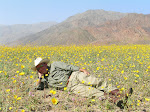Sic transit Gloria mundi! That’s for sure.
Actually my Dartmouth experience was a disaster. Born in
Ecuador to American parents, I arrived at Dartmouth a promising student from an
eastern prep school exempting out of several courses and had a 4.0 average my
first term but soon deteriorated rapidly in all areas of my life. Expelled for
two years at the end of the first term of my junior year, I returned, completed
my course work in June of 1966 but was not granted my degree as I failed a part
of my then required comprehensive examination in Chemistry. I am certain I hold
the class record for receiving my degree the last – it was finally given to me in
1993 29 years after y’all graduated.
It was not until 1973 I discovered I had an alcohol
addiction coupled with a mental affliction, anosognosia – an inability to
diagnose oneself[i].
To know is to be healed!
I left campus for the last time in June 1966 with additional
disciplinary marks. Immediately getting a job on the space program I spent the
next years as a computer analyst at the Space Center in Houston and Cape
Canaveral. It was very heady rubbing shoulders with the original astronauts as
they trained on the flight simulators I worked on. I went from expulsion to
flying to the moon in 1968 in the simulator. After the lunar landing I worked
on large communications networks. When the drinking finally stopped in 1973 I
became a very highly regarded independent computer consultant for another eight
years, then stopped working altogether in 1981 at the age of 39, also, I
believe, a first in the class.
Spiritual interests have consumed my life for the past forty
years. I left my wife and young daughter in about 1980 and travelled to India, making
fourteen trips so far, staying with my guru at his small crumby ashram on the
banks of the Ganges. Additionally, I have been trekking and climbing in the
Himalayas nine times, eight trips to the base of Mt. Everest. I really haven’t
lived anywhere for the past thirty years, camping out here and there with
friends and in odd places. It’s one thing to go camping because you like to go
camping and quite another to go camping because you have no place else to live.
I once spent four months camping in my tent at the base of Mt. Whitney in
California which I climbed a number of times, once up and down in less than
eight hours.
Five years ago when I was 65 I took a maintenance job at a
summer camp in Mammoth Lakes, CA up in the mountains. I sort of ‘came to’ one
morning spraying full strength Listerine in the urinal to eradicate the smell
and wiping down the fixtures and everything else with Windex. I looked at
myself in the mirror and said, “You know, I never imagined it would turn out
this way.” As summer ended my then girlfriend asked me what I was going to do.
I said, “Oh, probably go off camping in Death Valley for the winter.” She said,
“Well, you can camp out with me in Los Angeles.”
So here I am! Los Angeles has been superb. I could never
have imagined its many advantages for me. My health is very good - I hike up to
thirty miles a week in the mountains nearby. I do have one thing cooking away
in background. Four years ago a psychic told me I would be raising my
granddaughter. My daughter got married a year later and had twin daughters just
a year ago [September 2013], sooooooooooooo
From my current vantage I would say of all the assets one
could have the one that has been most important for me has been GOOD LUCK and a
lot of good friends. I mean friends you live with sometimes for years.
Regarding my spiritual experiences, God is a question of
supply and demand - No demand, no supply. My spiritual advisor once said I
maintain my edgy lifestyle to force myself to remain spiritually seeking.
Garth Brooks -
‘Pushing Up Daisies’:
There's two dates in time that they'll carve on
your stone
And everyone knows what they mean, what's more
important
Is the time that is known in that little dash
there in between
Yeah, that little dash there in between
Carlos Ballantyne – Class of ’64 multiple
record holder
[i]
“Anosognosia, as the condition is known, is one of the most eccentric
neuropsychogical presentations one is likely to encounter. The word – which
derives from the greek nosos, “disease”, and gnosis, “knowledge” – denotes the inability to acknowledge disease
in oneself. Imagine a victim of a major stroke, entirely paralyzed in the left
side of the body, unable to move hand and arm, leg and foot, face half
immobile, unable to stand or walk. And now imagine that same person oblivious
to the entire problem, reporting that nothing is possibly the matter, answering
the question, “How do you feel?” with a sincere, “Fine.”… Decartes’ Error, Emotion, Reason, and the Human Brain, Antonio Damasio,
Avon Books, Pgs. 62,63

